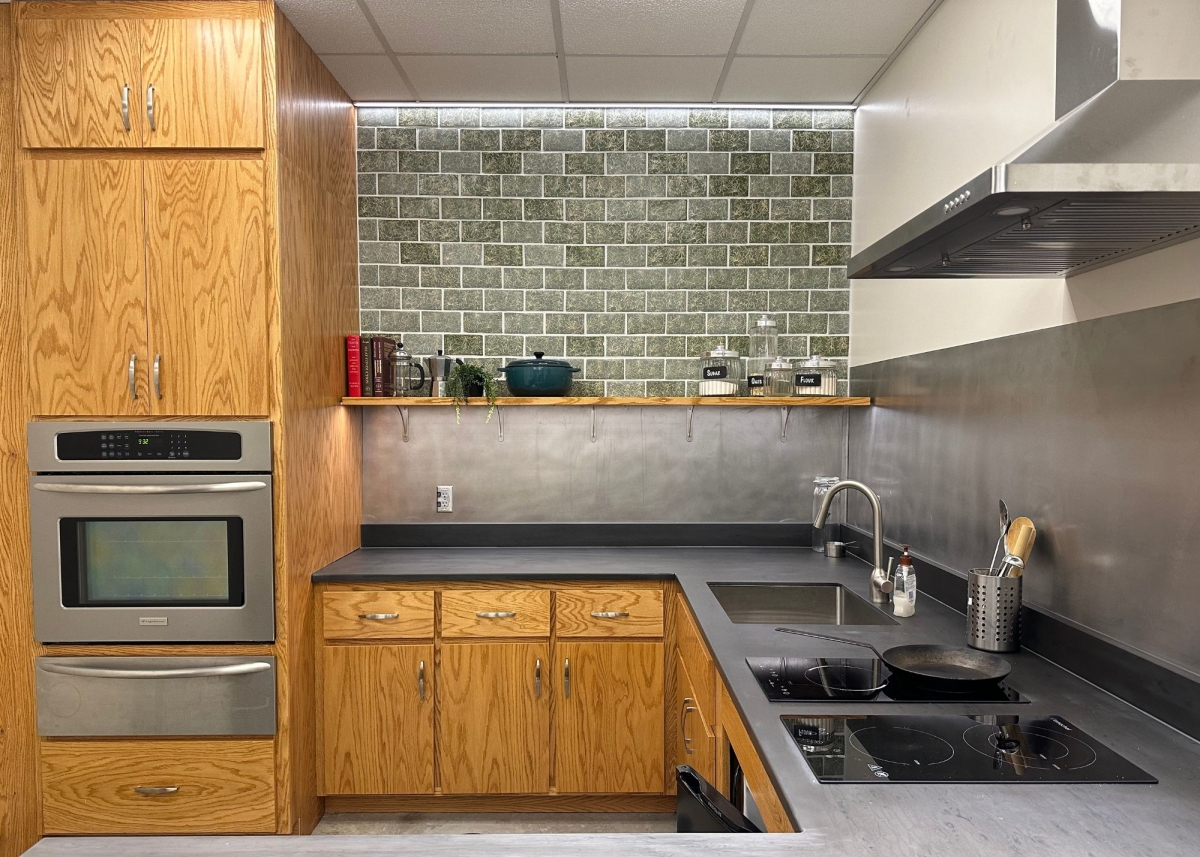About the SPICE Lab
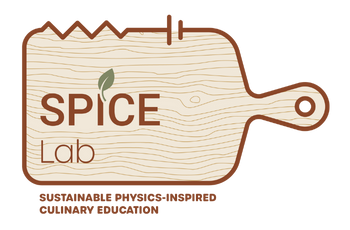 The SPICE (Sustainable, Physics-Inspired Culinary Education) Lab explores the thermodynamics and sustainability of cooking and the larger food system through the lens of physics.
The SPICE (Sustainable, Physics-Inspired Culinary Education) Lab explores the thermodynamics and sustainability of cooking and the larger food system through the lens of physics.
The SPICE Lab is divided into two parts. The first half is a science laboratory for researching the energy efficiency of cooking, such as determining the thermodynamic properties of cookware and cooktop options that are most energy efficient. Students also work in this space to test various physics-related cooking research questions.
The second half of the SPICE Lab is a combined virtual cooking classroom and recording studio with live energy-monitoring equipment for the cooking devices and outlets. This will be used to augment the instruction of courses (including PHY 2220: "The Physics of Food and Cooking"), hosting synchronous zoom cooking classes and producing pre-recorded cooking demonstrations for additional outreach & education opportunities.
The research and outreach in this space will help people better understand the opportunities that exist in our kitchens and food system to improve efficiency, reduce costs and relieve some of the negative impacts on our earth’s natural systems. Integrating physics with cooking science makes otherwise complicated concepts more “digestible” and understandable.
Read the full SPICE Lab announcement on the College of Arts and Sciences website here.
Sample Videos
- SPICE Lab Information and Introduction
- Get Bakin’ episodes, a collaboration with Appalachian Renewable Energy Initiative (REI) and AppTV: Pumpkin Soup, The Great Pizza Race, and Lentil Tacos
- To better prepare your kitchen for emergencies, see The Resilient Kitchen.
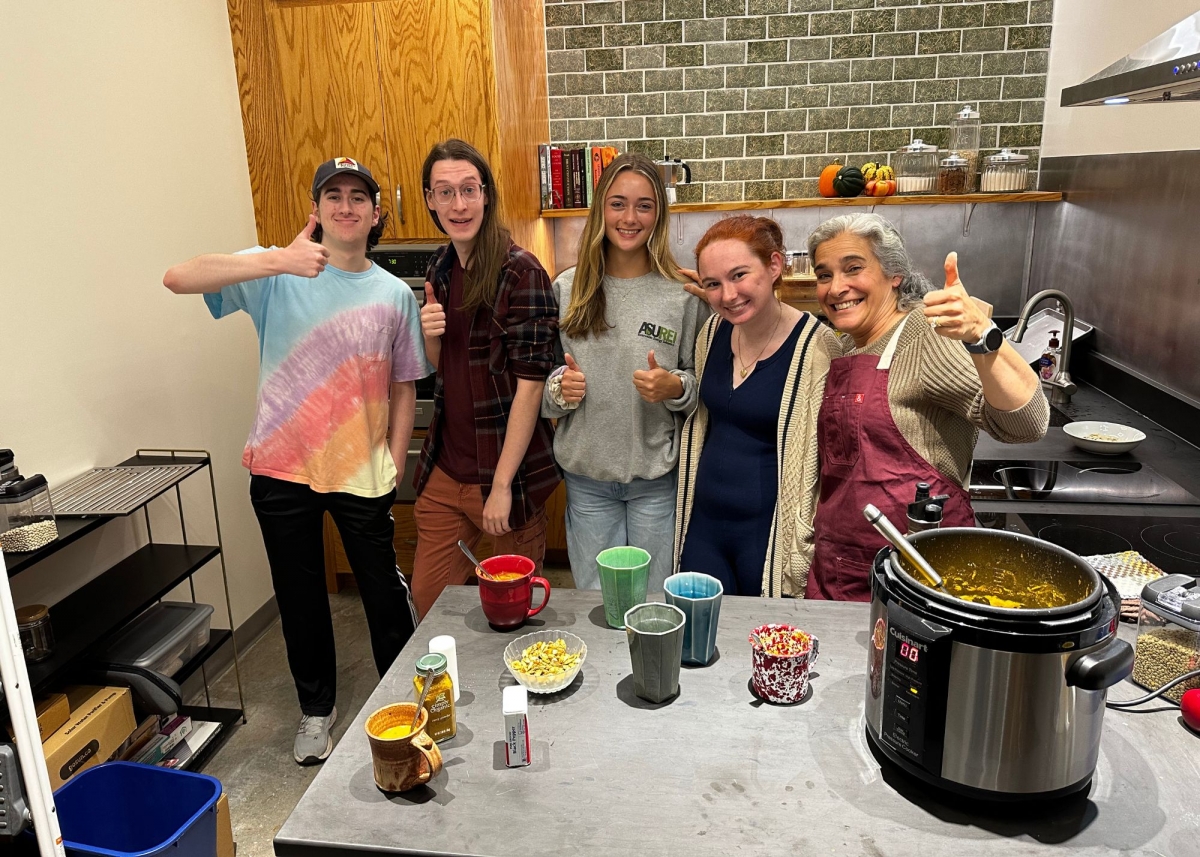
The group filming the pumpkin soup episode of Get Bakin' in the SPICE Lab.
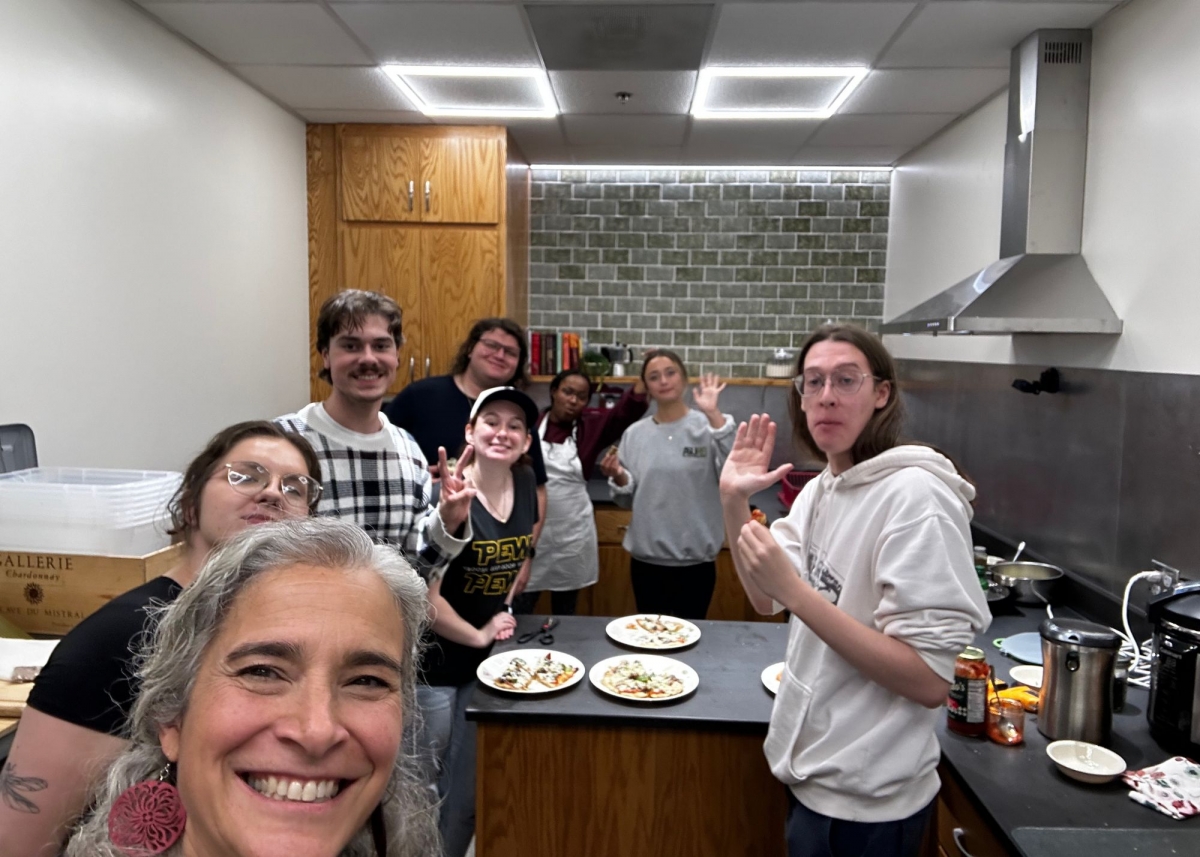
The group filming the skillet pizza episode of Get Bakin' in the SPICE Lab.
Research
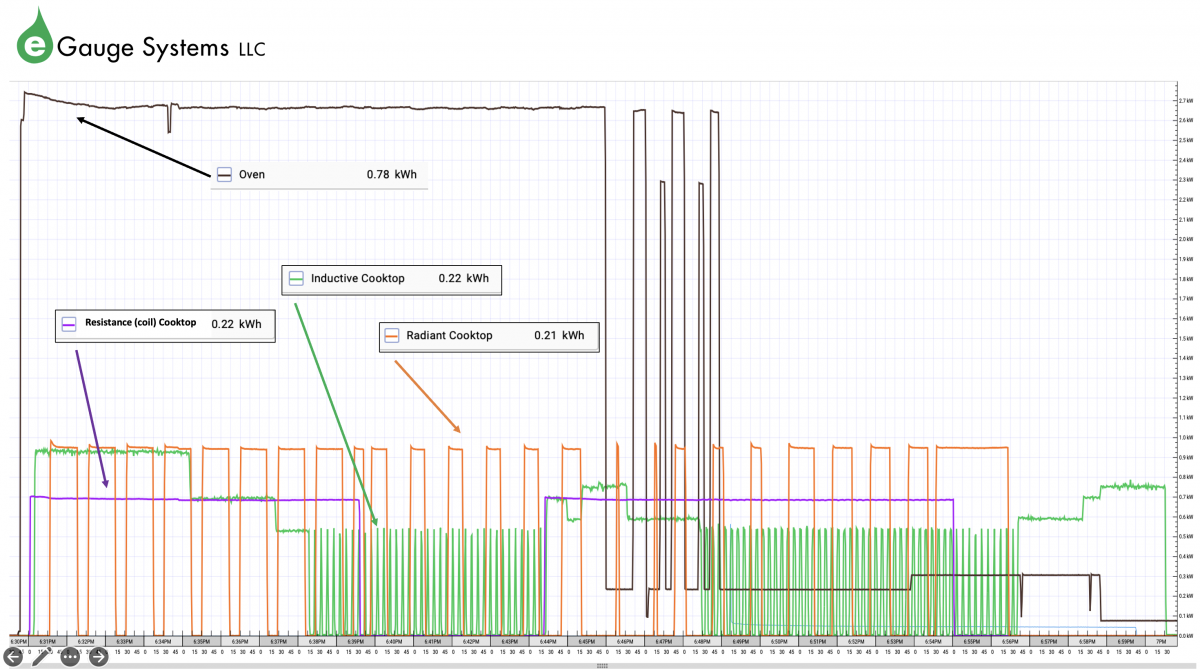
A sample of energy monitoring equipment – taken from “The Great Pizza Race” Get Bakin’ episode.
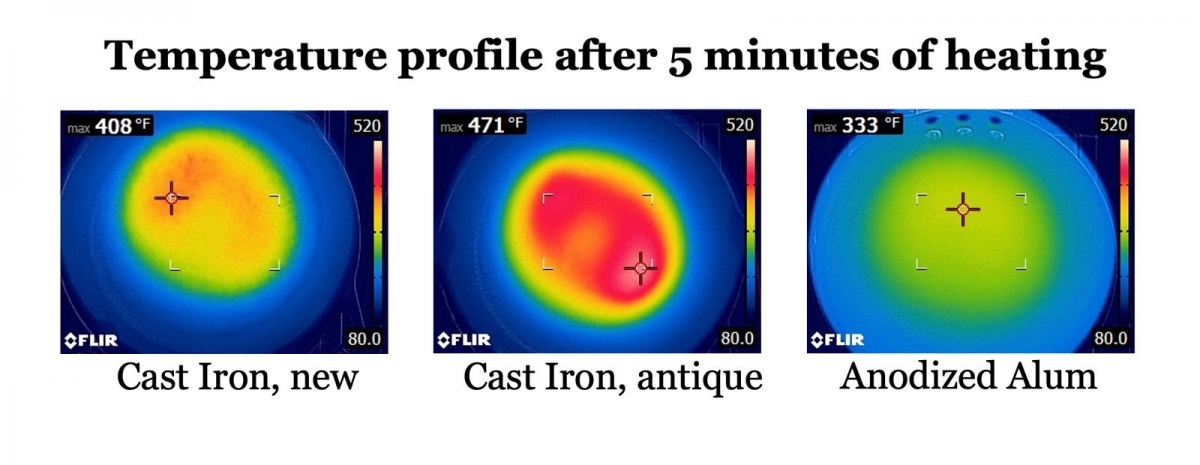
Taken from journal paper “Thermodynamic Analysis of Skillet Material Using Infrared Thermography.”
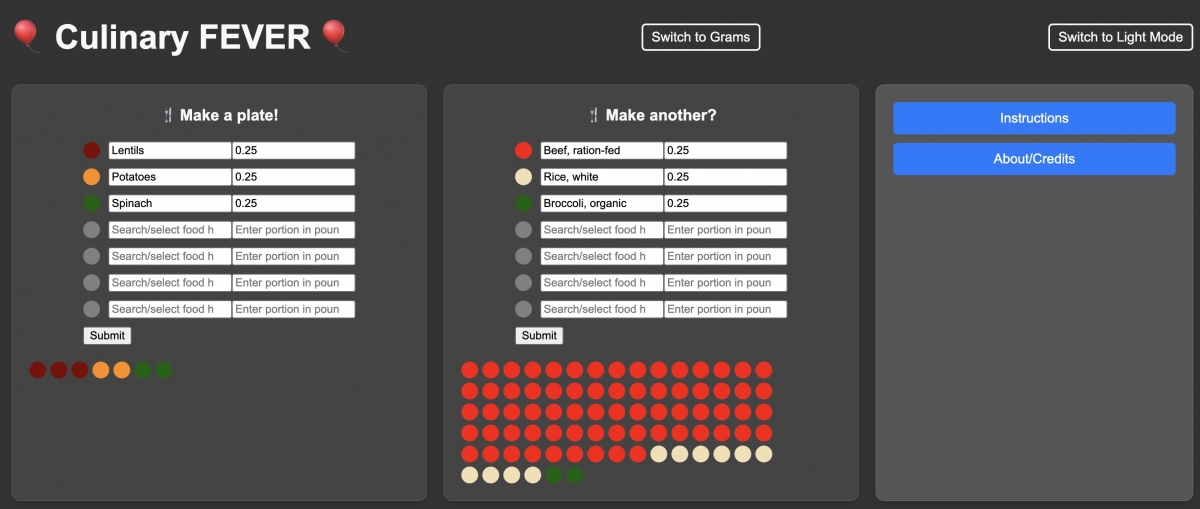
Taken from FEVER (Food Emissions Visualization Educational Resource) website to visualize Greenhouse Gases from various food choices.
Leadership
- Carla Ramsdell, practitioner-in-residence in the Department of Physics and Astronomy and sustainability liaison for the College of Arts and Sciences, is the director of the SPICE Lab.
- Patrick Richardson, electrical engineer in the College of Arts and Sciences' Machine and Electronic Shop, designed, ordered and installed the system that allows users to track the energy to every appliance and outlet.
- Dr. Madeline Hinkle, assistant professor in the Department of Physics and Astronomy, is the consultant on Science Pedagogy in the SPICE Lab.
#SPICELabPhysics
Check out Carla's website: knowwattscooking.com.
